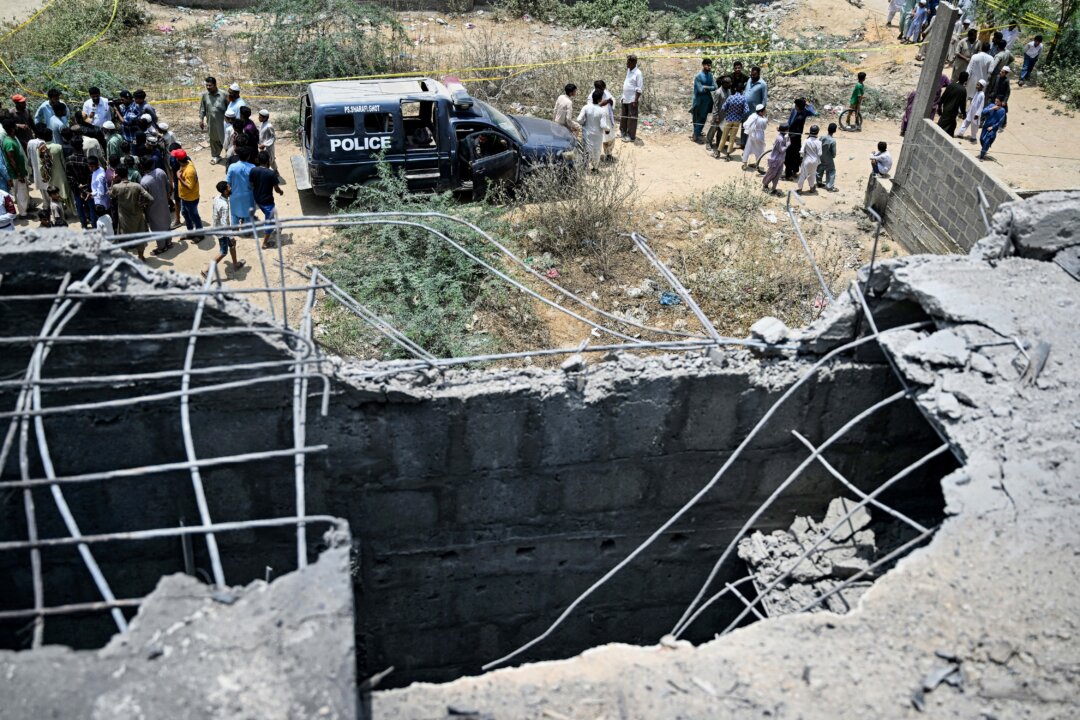Violence between the two nuclear powers is escalating after India struck its neighbor, accusing Islamabad of being complicit in a terror attack in Kashmir.
India and Pakistan accused each other of further attacks on Friday as hostilities between the two nations continued.
India’s army said on Friday that Pakistani troops had perpetrated “numerous cease fire violations” along the de facto border in the disputed region of Kashmir.
“Pakistan Armed Forces launched multiple attacks using drones and other munitions along entire Western Border,” on May 8 and 9, the Indian military said in a post on the social media site X.
There were numerous locations of hostility “along the Line of Control in Jammu and Kashmir,” it said, adding that “drone attacks were effectively repulsed,” and hostilities were given a “befitting reply.”
The army added in a press conference that some 300–400 Turkish-made drones overnight had crossed into Indian airspace to target military installations across 36 locations along the western borders.
Indian Air Force Wing Commander Vyomika Singh said that the drones had been “neutralized” and that India responded by launching drone strikes on four Pakistani air defense sites.
In Pakistan, a night of artillery barrages killed at least four civilians and wounded 12 others in areas near the Line of Control, local police official Adeel Ahmad told the Associated Press.
Calls for de-escalation have come in from around the world, with British Foreign Secretary David Lammy say on X on Friday that “tensions between India and Pakistan remain a serious concern,” for the UK, adding that he had spoken to his counterparts in New Delhi and Islamabad to “push for a path forward through diplomacy, not conflict.”
“I have been clear to all sides that if this escalates further, nobody wins,” Lammy added.
U.S. Vice President JD Vance on Thursday reiterated Washington’s hope for de-escalation.
“We want this thing to de-escalate as quickly as possible,” he said in an interview on Fox News.
Kashmir, a Muslim-majority region, has been at the center of hostilities over which New Delhi and Islamabad have fought two of their three wars.
India administers the majority of Kashmir, but Pakistan administers the northern and western areas, and China controls territory in the east, some of which was ceded by Pakistan.
This latest bout of violence erupted after a terrorist attack in Indian-administered Kashmir on April 22 in which three gunmen killed 26 people. Those killed were mostly male Hindu tourists.
A group called the Kashmir Resistance, also known as The Resistance Front, claimed responsibility, and India said the group was an offshoot of Lashkar-e-Taiba, a terrorist group that has in the past attacked the Indian military and police in Indian-administered Kashmir.
Pakistan has denied any links with the terrorists. On May 1, Pakistani Defense Minister Khawaja Asif said to Sky News that the April 22 incident might have been a false flag attack.
The Indian army said the military operation was named Sindoor—a Hindi word for the red vermilion powder worn by married Hindu women on their forehead and hair—in recognition of the women whose husbands were killed in front of them during the April 22 attack.
The Indian Ministry of Defence said in its statement about Operation Sindoor: “These steps come in the wake of the barbaric Pahalgam terrorist attack in which 25 Indians and one Nepali citizen were murdered. We are living up to the commitment that those responsible for this attack will be held accountable.”
Chris Summers contributed to this report.

